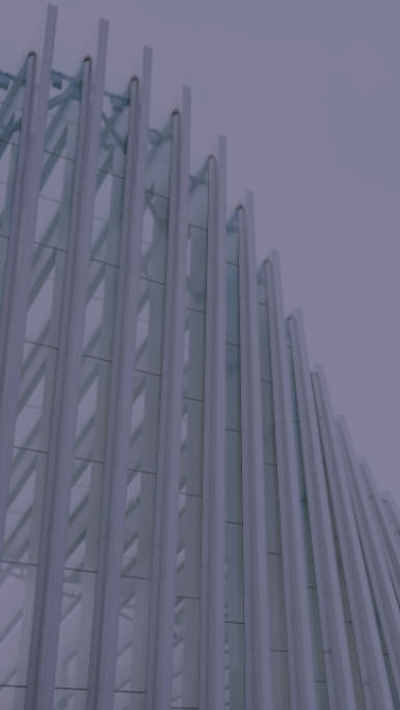Speak to our experts
Contents
Newshub last night reported on an investigation into alleged historic sexual abuse by Cardinal John Dew, the former head of the Catholic Church in New Zealand. Publication was cleared by the Supreme Court in a judgment delivered earlier this week after seven months of legal skirmishing.
Chapman Tripp acted for Newshub owners Warner Bros. Discovery in the proceedings.
The case Dew v Discovery NZ Ltd1 illustrates two points of public interest:
- The principle that prior restraint of the media (prevention from publishing on the basis of defamation) should be available only under exceptional circumstances; and
- The ability of people with power and money to use the court system with the effect of frustrating or delaying the reporting of material that may be damaging to them.
We trace the chain of events through the High Court and the Court of Appeal to the Supreme Court and provide a brief commentary on the significance of the various decisions made during the course of the litigation.
Background
Newshub was approached in May 2023 by a brother and sister who had lived at a Catholic orphanage in the Lower Hutt for a period in the 1970s and now had recollections of being sexually abused there by then Father Dew and another priest. They had also gone to the Police.
Four days before Newshub was to broadcast the item, it went to the Catholic Church and Cardinal Dew for comment. Cardinal Dew sought an urgent interim injunction from the High Court claiming that:
- The allegations were false and publishing them would amount to defamation;
- Publication, together with the fact that the Police were investigating him, would invade his privacy; and
- His rights to a fair trial would be jeopardised and the potential to get name suppression would be rendered redundant.
High Court
In a decision issued on the day of the intended broadcast, the High Court dismissed the application saying Cardinal Dew hadn’t “met the high legal threshold for an interim injunction” as he had not demonstrated there was “no reasonable possibility” that Warner Bros. Discovery could establish a post-publication defence to either the defamation or invasion of privacy claims.
However, the Court imposed wide-ranging suppression orders to protect Cardinal Dew’s right to take an appeal – which he did.
Court of Appeal
In the Court of Appeal, as well as re-running the arguments that the High Court had rejected, the Cardinal also argued that an earlier ruling by the District Court lifting the automatic name suppression granted to victims of child sexual abuse had the effect of suppressing the allegations.
But the Court of Appeal also ruled in Warner Bros. Discovery’s favour, on the same grounds as the High Court – the threshold for gagging the media was extremely high and would require that the Cardinal be able to demonstrate that Warner Bros. Discovery had “no reasonable possibility of a legal defence”.
It also found – as did the High Court – that Cardinal Dew had been unable to establish that the broadcast would seriously prejudice his chances of a fair trial should the Police lay charges.
Again, however, the suppression orders were extended, this time to let Cardinal Dew seek leave to appeal to the Supreme Court.
Supreme Court
The Supreme Court refused to hear the appeal on the basis that:
- It was not “seriously arguable” that the District Court’s orders could suppress the allegations given that the jurisdiction to make suppression orders under the Criminal Procedure Act 2011 only applies after charges have been laid;
- The fair trial rights arguments had become moot because the Police were not charging Cardinal Dew as they had not located sufficient evidence to provide a reasonable prospect of conviction; and
- This was not an appropriate case to revisit the long-standing rule that prior restraint of the media should only be granted for “clear and compelling reasons” where no reasonable defences could succeed.
Chapman Tripp comment
Threshold for gagging the media
The three decisions (High Court, Court of Appeal and Supreme Court) confirm that, in reputation-related claims, prior restraint will only be granted if the party can demonstrate that there is no reasonable possibility that the media could establish a defence.
That said, the Supreme Court’s decision was not a full-throated endorsement of this principle, as the Court left open the possibility that the threshold could be challenged in “an appropriate case”2.
Gagging tactics need to be addressed
The broadcast was first scheduled for 7 August 2023 yet, despite his injunction application being dismissed, Cardinal Dew was able to block publication for seven months by appealing the decision to the Court of Appeal and seeking leave to appeal to the Supreme Court.
This pattern is not without precedent in New Zealand. Even where an application has no realistic prospect of meeting the high bar for granting prior restraint, an applicant can significantly delay publicity by using the appeal mechanism.3
Not only is this a “drastic interference with freedom of expression”,4 but it forces the media to spend significant resources in a context where many media organisations are under significant financial constraint.
We consider that the Courts need to be alive to these realities and should grant interim suppression orders pending an appeal, and certainly an application for leave to appeal to the Supreme Court, only where they consider that the matters are finely balanced and there is a realistic prospect of the prior restraint threshold being met.5
Invasion of privacy blunted
But the judgments in this case will undo some of the legacy of the 2019 High Court decision in Driver v Radio New Zealand Ltd which found it was reasonably arguable that the media disclosing the fact of a police or other regulatory investigation could invade someone’s privacy.6
Cardinal Dew’s lawyers ran a similar argument but the Court of Appeal rejected it on the grounds that:
- Cardinal Dew had denied the allegations, so if they were untrue they could not be private facts about Cardinal Dew and instead were properly the province of defamation;7
- Even if they were private facts, the alleged victim’s right to speak about their claimed experience trumped any reasonable expectation of privacy that Cardinal Dew might have, meaning that the publicity could not be highly offensive; and
- The fact of a police investigation did not create a reasonable expectation of privacy by itself.8 Rather the focus needed to be on the source of the information and the content of the reporting – whether it simply noted that there was an investigation or went further and reported the contents of the investigation and the investigation’s conclusions.
Chapman Tripp’s involvement in the case is ongoing.
1. Dew v Discovery NZ Ltd [2024] NZSC 21 at [8].
2. Dew v Discovery NZ Ltd [2024] NZSC 21 at [8].
3. See Peter T Rex LLC v NZME Publishing Ltd [2024] NZSC 10 where suppression orders were in place for 11 months during the appeal process.
4. Attorney-General v British Broadcasting Corp [1981] AC 303 (HL) at 362 per Lord Scarman.
5. Such a course, we consider, does not render appeal rights nugatory. There is no general right of appeal from interlocutory decisions (s 56(3) of the Senior Courts Act 2016). Also. if a superior Court determines that an injunction ought to have been granted, that is likely to be a matter relevant to damages.
6. Driver v Radio New Zealand Ltd [2019] NZHC 3275, [2020] 3 NZLR 76.
7. At [130].
8. At [141]-[146].













































































